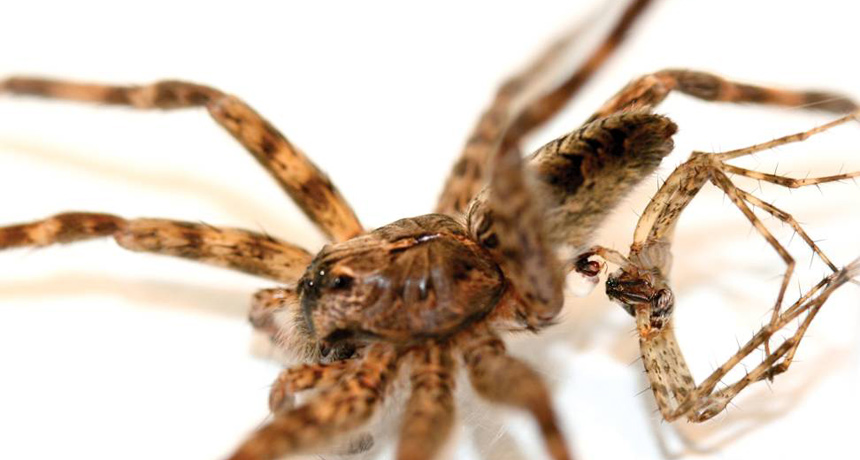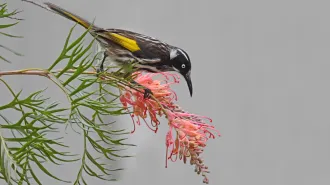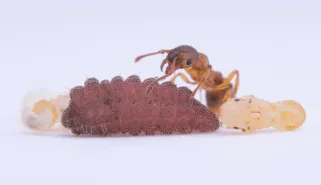In dark fishing spiders, males’ postmating nap is permanent
Species prepares for two pairings but goes into a fatal coma after a single encounter

FIRST AND ONLY A male dark fishing spider (right) self-destructs during his first and only mating experience. He spontaneously collapses into a dead-spider position though his sperm-delivery organ still connects him with a female.
S.K. Schwartz






